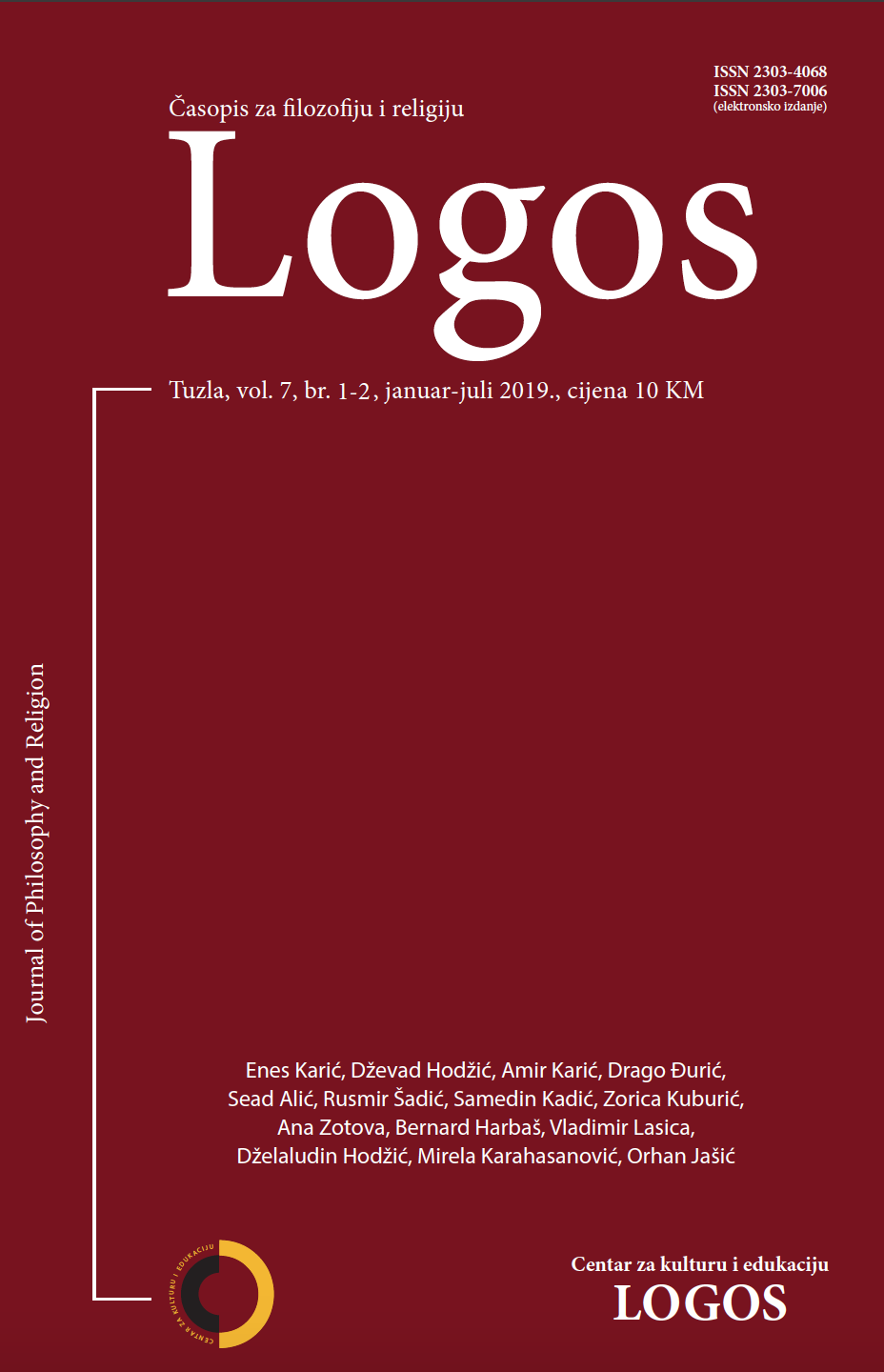Nema sekularizacije bez neprijatelja
THERE IS NO SECULARIZATION WITHOUT ENEMY
Author(s): Bernard HarbašSubject(s): Political Philosophy, Structuralism and Post-Structuralism, Philosophy of Religion, Cultural Anthropology / Ethnology, Culture and social structure , Sociology of Religion
Published by: Logos – Centar za kulturu I edukaciju
Keywords: the political; enmity; secularization; friend; identity; Europe; constitutive outside;
Summary/Abstract: This article departs from Carl Schmitt’s understanding of the notions of the political and enemy and their interpretation in contemporary social and political theory. Concept of the political implies a multitude of grouped and opposed yet not necessarily conflicting parties. The political can be understood as a confirmation of political unities’ existences, as well as the strength of their inner coherence. In other words, the political is a strengthening of ties within a political community because beside and opposed to it there is another (hostile) community. In contemporary philosophy, Schmitt’s understanding of the political is, among others, interpreted from the theory of identity standpoints. In that sense, enemy represents a confirmation that there is the other who is opposed, independent and different from the ‘same’. Talal Asad is of the opinion that with the emergence of Enlightenment Europe formed the identity of modern and secularized community which simultaneously brought about outlining of clear demarcation with religious East which, from the Western standpoint, remained undeveloped because it didn’t undergo the process of secularization. Similar thesis is brought forward by Gil Anidjar who states that Europe constitutes and strengthens its identity through the enmity towards the religious East. According to Chantal Mouffe, enemy is understood as a constitutive outside, i.e. as the condition for forming the identity. For Derrida, Schmitt’s concept of the enemy can be understood as ‘the other’ who is not only different but significant since, because of its otherness, opposition and distance, it prevents ethnic homogenization and thus creation of new enmities. The article shows that Schmitt’s the political doesn’t necessarily has to be understood as a concept which supports absolutist power and necessarily enmity. On the contrary, through contemporary (especially poststructuralist) interpretations one can see that enmity is unavoidable element in constituting the identity and, even more importantly, foundation for every authentic friendship.
Journal: Logos – časopis za filozofiju i religiju
- Issue Year: 7/2019
- Issue No: 1-2
- Page Range: 123-135
- Page Count: 13
- Language: Bosnian

